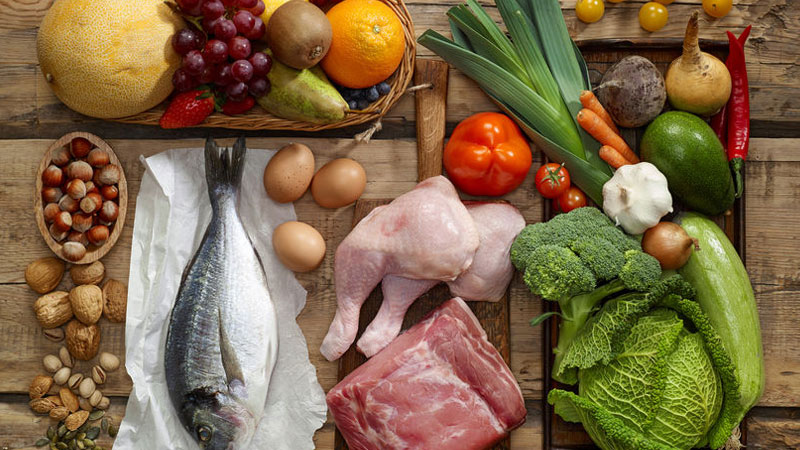
When it comes to optimal health and physical performance, diet and nutrition are key!
Being active, lifting weights and watching what you eat are all important aspects of optimal wellness. Nutrition has the power to transform you from a reasonably-fit and healthy man to a supercharged, lean, strong and confident athlete.
In this article, we break down the science of the very best testosterone-boosting ingredients and foods.
We’ve pulled in the best experts, researchers and coaches from Greatest Physiques to break down the science and show you which supplements you need if hormonal health is the goal.
If you want to find out more about the best natural testosterone-boosting nutrients out there, this is what you need to read…
What Is Testosterone and Why Is It Important?
Testosterone is a naturally-occurring steroid hormone used by the body to regulate both anabolic and androgenic characteristics.
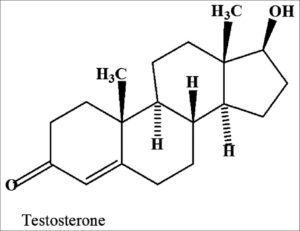
As a fat-soluble hormone, testosterone is produced in the Leydig cells of the testes. It’s found in the ovaries and adrenal glands in women. It regulates several important function that contribute to both health and physical/cognitive performance.
Testosterone is an androgen that controls your secondary sex characteristics. It boosts masculinity by helping you develop and maintain a deep voice, broad shoulders and strongly assertive temperament.
It also optimizes muscle protein synthesis which is what’s needed to carve out more muscle mass and strength.
The many benefits of naturally-high testosterone levels include:
- Lean composition, low body fat and more muscle mass
- Higher levels of strength, force production, and power
- Accelerated stamina and endurance
- Lower risk of developing metabolic, vascular or cognitive disorders
- Stronger libido and better bedroom performance
- Lower risk of early death from all-cause mortality
Testosterone is regulated by the hypothalamic-pituitary gonadal axis
Normal testosterone levels for a man fall between 300-1,000 ng.dL. For women, it’s 25-70 ng.dL.
Having optimal hormones means a healthier and more positive outlook on life. For men like you, that means development of a strong and assertive physique. For women it means a toned, curvier silhouette without muscle bulk.
Optimal testosterone levels rely on a feedback loop that controls how much of the hormone is in your blood at any one time. This is called the hypothalamic-pituitary gonadal axis.
- When testosterone levels are falling, a center of your brain called the hypothalamus kicks in. It works like a thermostat, registering that hormone production needs to be higher.
- To achieve this, the hypothalamus releases a hormone called gonadotropin-releasing hormone (GnRH). This travels a short distance to the pituitary gland, which is located just below the hypothalamus.
- Once GnRH arrives at the pituitary gland, it acts like a messenger. After receiving the message, the pituitary releases its own hormone called luteinizing hormone (LH). This travels throughout the bloodstream until it arrives at the testes. It acts like an alarm clock, waking up the Leydig cells and telling them to make more testosterone.
- Once the Leydig cells kick into action they bring blood testosterone levels back up to where they need to be. At that stage, the hypothalamus slows down GnRH production… and hormone levels are optimized once again.
The HPG axis is a clever system that is always pushing to find the perfect blood testosterone levels for you. However, it doesn’t always work as well as it should; and that’s when the problems start…
Low Testosterone: A Real Issue for Men
From the age of thirty, testosterone production naturally begins to decline by around 1-2% each year.
When the HPG system works effectively you’re never short of testosterone. During your late teens and twenties, you enjoy the many benefits that this powerful hormone provides.
From the age of thirty though, testosterone production naturally begins to slow. The trigger from the hypothalamus isn’t as effective, and the Leydig cells become less able to deploy hormones into the bloodstream. According to statistics from the International Journal of Clinical Practice, 40% of men aged 45 or over suffer from a condition called hypogonadism – clinically low testosterone levels.
That’s a worrying number.
The good news though is that you CAN fight back.
With the right exercise and nutrition plan you can reverse the natural decline and turn back the clock on testosterone production.
Symptoms of hypogonadism
So, how do you know your hormones are running low?
Well, it’s quite hard to pinpoint the exact symptoms of hypogonadism because they can be wide and varied. However, there are a few more common ones to look out for.
These include:
- Loss of muscle and bone mass, strength and stamina
- Feelings of low mood, anxiety or depression
- Lack of energy, motivation and drive
- Poor sleep quality, irritability and frustration
- Regular short-term illness
- Confusion, memory loss and general reduction in brain function
Low T and risk of serious illness… even early death
Hypogonadism may be linked to earlier all-cause and cardiovascular related mortality among men.
Low testosterone is strongly correlated with higher disease risk. Studies show that suffering from low T significantly increases your risk of developing coronary artery disease, higher blood pressure and peripheral artery disease.
There’s also substantial evidence that low T leads to metabolic diseases such as high cholesterol and diabetes. Not only that, research shows that due to its pleomorphic role, low testosterone speeds up the rate at which bone loss occurs, significantly boosting your risk of osteoporosis and other degenerative bone conditions.
Lastly, there’s building evidence that sub-par hormone levels increase risk of early death from all-cause mortality (risk of death from any single medical cause).
One clinical review reported that in a group of nearly 800 men, those with hypogonadism were 40% more likely to die and early death. This perfectly illustrates how important it is to control hormone production through healthy diet, exercise and the best testosterone-boosting ingredients and foods.
Key Point: Low testosterone is a risk factor for several life-threatening illnesses. It’s important you do all you can to correct it through diet, exercise and supplementation.
Fixing the Issue: You Don’t Need to Accept Low Testosterone
The risk of metabolic disease, heart problems and early death is enough to make anyone panic.
But here’s the good news. Research shows that while guys over 30 are at an increased risk of developing hypogonadism, it’s not aging itself that causes a reduction in testosterone production; it’s more to do with poor lifestyle choice.
And that’s good news.
Because with the right choice of exercise, diet and supplements you can reinvigorate your androgens, drop excess weight and build up your lean mass once again.
In no time at all you’ll be a leaner, stronger and more athletic man that oozes assertiveness and confidence.
Win the war against low androgens with the right lifestyle choices
To kick start testosterone production, you need a plan.
Here are the best ways to optimize hormone production and get yourself back to your very best:
#1. Lose weight – Obesity is a road block to high testosterone. Being overweight makes it difficult to optimize anabolic hormone concentrations due to high estrogen in your blood and fat cells.
#2. Lift weights – Regular strength training ramps up androgen production and growth hormone levels, helping restore masculinity and rapid-fire metabolism.
#3. Eat nutrient-dense foods – Shooting for low calories with maximum nutrition is key to a healthy lifestyle. Aim for lots of vegetables, proteins, complex carbs and fruits.
#4. HIIT your training – It’s a brutally hard system of training, but regularly putting your body through its paces with high-intensity interval training is a great way of improving fitness, lean body composition and hormonal balance.
Your road map to achieving hormone balance is right there in front of you
Don’t accept defeat and don’t back down. The slide into hypogonadism is NOT inevitable.
With the right tools you can become the master of your testosterone once again.
And that’s before we even talk about supplements…
Key Point: Low testosterone levels come from poor lifestyle choices. With the right exercise plan and some clever changes to your diet you’ll be back to your peak in not time.
The Best Testosterone-Boosting Ingredients
When it comes to harnessing the power of testosterone once more, everything you need comes from nature. The problem is that it can be difficult to get what you need from food alone… especially if healthy food ‘isn’t your thing’.
That’s where testosterone booster ingredients and foods come in.
Here’s a breakdown of the best testosterone-boosting ingredients and why you need them…
1. Vitamin D3
A fat-soluble steroid hormone with performance-enhancing properties
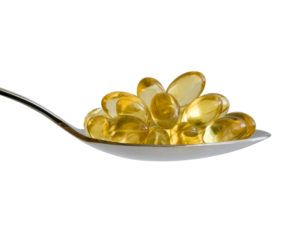
This powerful secosteroid nutrient is more of a steroid hormone than a vitamin. Not only does it boost heart health and brain function, it enhances numerous aspects of physical performance.
There are two kinds of vitamin D supplement:
- Ergocalciferol – vitamin D2
- Cholecalciferol – vitamin D3
When it comes to the best testosterone boosting ingredient, D3 takes it every time. It has a high availability and a much stronger research profile. And while your body synthesizes vitamin D3 from sunlight, you won’t get enough of it unless you live in a constantly sunny climate.
Vitamin D2 has been shown to negatively affect athleticism so it’s better to stay clear of that one altogether.
You can obtain D3 from oily fish, meat and dairy foods, but with 40% of US citizens being deficient, it makes sense to supplement this awesome nutrient for optimal hormonal effects.
Vitamin D3 and testosterone – The research
As one of the more popular supplements with athletes, vitamin D offers numerous benefits.
- Reduces muscle soreness and enhances recovery
- Optimizes brain function, concentration and motor skills
- Linked to lean body composition and higher muscle mass
Vitamin D3 has a direct effect on androgen levels.
For example, 3,332 IU of vitamin D3 supplementation has been shown to increase both bioactive and free testosterone in men. And doses of 6,000 IU have boosted androgen levels and aerobic fitness in a group of high-level rowers.
2. D-Aspartic Acid
An amino acid found to boost luteinizing hormone, testosterone production and fertility.
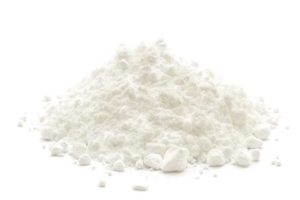
D-aspartic acid (D-AA) is an amino acid. You find it in foods such as meat, dairy, seafood and corn protein. D-AA is building block of protein which is important for the development of new muscle cells.
Here are just a few of the benefits of supplementing D-aspartic acid.
- More energy
- Better sleep
- Improved blood circulation
- Boosts muscle mass
- Increased muscle pump during exercise
D-Aspartic acid and testosterone – The research
D-AA triggers production of luteinizing hormone in the brain.
Research shows that it is an important regulator of the rate-step limiting process by which testosterone is produced.
One specific report found that 12 days of D-AA supplementation resulted in a significant increase in luteinizing hormone production, which in turn ramped up testosterone release from the testes.
In a study of 30 healthy men, 2.66 g of the amino acid resulted in an increase in serum testosterone production by 30-60%. Not only that, but a 60-100% increase in seminal mobility was also noted. That was over just 90 days.
3. Ashwagandha
As an Ayurvedic herb, Ashwagandha improves both androgen concentrations and athletic ability.
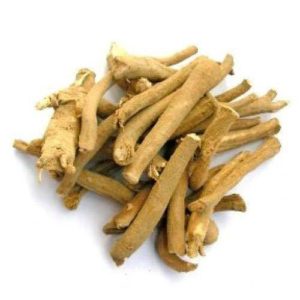
Herbs are typically high in nutrition. Ashwagandha provides a high dose of alkaloids such as steroidal lactones.
It’s been used in traditional medicine for hundreds of years. And it provides a number of stress-busting adaptogen benefits.
Although its name translates to ‘smell of horse’, ashwagandha offers rejuvenation benefits and aphrodisiac properties.
And many of them are due to improved androgen levels and testosterone production, meaning as a supplement, it boosts everything from energy and strength, to motivation and health.
Ashwagandha and testosterone – The research
If you’re after the real best testosterone-boosting ingredient, ashwagandha should be at least towards the top of your list.
Taking 300 mg over a 60-day period has been shown to reduce cortisol levels by a huge 28% in a group of 64 chronically stressed men.
Why is this important? Well, as a direct antagonist to testosterone, high cortisol levels over a long period of time will negatively affect male hormone levels.
A paper in the Journal of Ethnopharmacology found that when 180 infertile men were given 5 g per day of ashwagandha over a 2-month period, both sperm quality and markers of elevated testosterone were observed.
Similar results were seen in a study using 57 Indian men, with testosterone levels increasing by nearly 15% after 600 mg of the adaptogen herb extract combined with strength training.
A great herb with powerful results.
4. Zinc
Zinc is an essential mineral found to improve various markers of immune health and testosterone production.
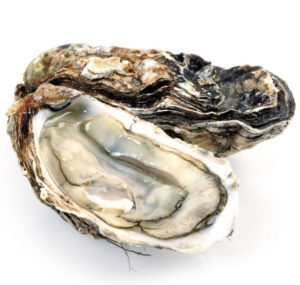
Found in foods such as oysters, meat, seeds, eggs and legumes, zinc plays a key role when it comes to hormone, immune function and metabolic health.
As many as 50% of people worldwide don’t get enough of this mineral from food alone.
Those that are physically active are at an even higher risk of zinc deficiency due to its use during cellular respiration. And when zinc deficiency occurs, muscle loss, latent fatigue and exhaustion can occur.
Zinc and testosterone – The research
There’s a reason why foods such as oysters are strong aphrodisiacs! It’s the highest source of the mineral you’ll find.
As a supplement, 3 mg per kilogram of body weight of zinc was found to preserve free testosterone decreases during exhaustive exercise in a group of wrestlers. This helped to improve athletic performance and maintain androgen production.
In another study, the absolute power of zinc was made evident. A group of infertile men were given a zinc supplement and the results were astonishing – not only did plasma testosterone and sperm count increase, some men even managed to get their partners pregnant.
5. Magnesium
As a dietary mineral and enzyme co-factor, magnesium supports both bodybuilding and androgen-boosting goals.
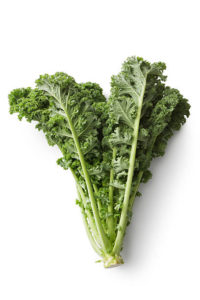
You’ll find magnesium in foods such as leafy green vegetables, beans, legumes and animal meats. But much like zinc, most people are deficient in this essential nutrient.
One research study suggested that athletes only get around 70% of the magnesium they need, and that endurance athletes are at the highest risk of magnesium deficiency.
Magnesium supplementation has been shown to help muscle recovery during intense periods of exercise. It also boosts strength, stamina and muscle power too; helping solidify this supplement as one of the best testosterone-boosting ingredients out there.
A study published in the American Journal of Clinical Nutrition found that those with higher daily magnesium intakes scored higher when it came to…
- Muscle performance – density and area and overall performance
- Daily exercise levels
- Grip strength and lower-leg muscle power, as well as knee and ankle extension torque
Magnesium and testosterone – The research
The link between magnesium supplementation and testosterone is well established. There are numerous research studies supporting the role of magnesium as a hormone support addition to the diet.
Testosterone is one of five forms of steroid hormone. And because steroid hormones are synthesized from lipids (cholesterol), magnesium plays a key role in regulating them.
Additionally, magnesium optimizes how energy is used in your cells in the form of adenosine triphosphate (ATP).
Research has demonstrated that magnesium supplementation enhances both total and free testosterone levels in men; especially when combined with exercise.
6. Boron
Boron is a bioactive chemical element with the ability to elevate androgens and increase metabolic rate.
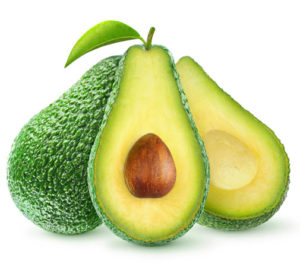
You’ll find boron in rocks, soil and the foods you eat. Nuts, raisins and avocados have the highest amounts.
Boron is one of the most bioavailable minerals in the modern diet, with more than 85% being taken up by the tissues after ingestion.
However, boron deficiency is the most common of all nutrients and a supplement is vital for proper metabolism and function.
As one of the healthiest nutrients around, boron offers a number of benefits to overall wellness, vitality and health. These include:
- Protects against arthritis
- Improves cell membrane integrity and strength
- Increases bone tissue strength
- Boosts heart health
Boron and testosterone – The research
Boron has both diverse and important roles when it comes to promoting health. It’s an essential mineral that you just don’t get enough of.
There’s strong evidence that boron improves androgen production by increasing free testosterone levels. For example, one research study found that even in as little as 6 hours, 11.6 mg of boron increased testosterone production by 14%.
Another study reported that 7-weeks of boron supplementation not only ramped up testosterone production in a group of bodybuilders, but strength and functional ability too… and that was with only 2.5 mg each day!
The bottom line is that boron is an essential mineral and something you really need to consider throwing into your supplement stack. It’s without a doubt one of the best testosterone-boosting ingredients available; even at low doses.
7. Fenugreek
This aromatically sweet herb is packed full of impressive health benefits and androgen-boosting nutrition
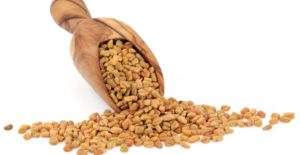
Fenugreek is a big part of Asian cuisine. The distinctive aroma and taste of the seeds make it a mainstay of several Indian and southeast Asian recipes.
More recently, it’s also been used in beauty products to help maintain brighter skin and healthier hair.
High in fiber, protein, magnesium and manganese, fenugreek is an herb that is power-packed with nutrition for very low calories.
We’ve known for hundreds of years that as a holistic therapy, fenugreek provides numerous benefits when added to your diet or supplement regime:
- Controls blood sugar, making weight loss easier
- Regulates cholesterol levels
- Promotes liver and kidney health
- Reduces muscle soreness and pain
- Relieves constipation
Fenugreek and testosterone – The research
Like many natural herbs and vitamins, fenugreek has potent aphrodisiac, androgen-boosting properties. But unlike other testosterone-enhancing nutrients, fenugreek offers its own very special benefits.
Your blood is packed with a protein called sex hormone binding globulin (SHBG), Its job is to cruise up and down your blood stream, looking for excess testosterone.
If it finds it, it binds to it, making it useless. As far as androgens go, SHBG is the arch nemesis! And as you get older, SHBG gets more efficient. It’s one of the major reasons why testosterone reduces with age.
Fenugreek helps to fight SHBG, meaning more circulating testosterone in the bloodstream.
Combine fenugreek with minerals such as magnesium and zinc and you’ve got a ‘testosterone bomb’ that’ll enhance testosterone to superhero levels.
8. Indole-3-Carbinol
I3C is a brassica compound that does it all; from lowering estrogen to offering anti-carcinogenic benefits.
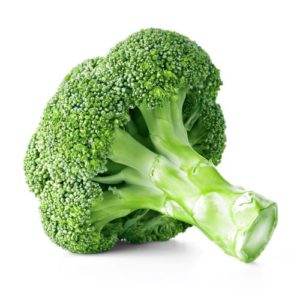
Indole-3-carbinol or I3C is a form of glucobrassicin compound. You’ll find it in foods such as broccoli, collard greens and cabbages.
It’s closely related to another health-giving compound used in testosterone boosters called DIM.
If you value your health, you’ll know that regularly eating dark green vegetables is key. They provide maximum nutrition in minimal calories and should form a large bulk of your diet.
However, vegetables aren’t for everyone… and that’s where an I3C supplement comes in.
Here’s a rundown of just a few of the many benefits eating brassica vegetables provides:
- Has potent anti-cancer properties
- Improves muscle and neural pain
- Provides anti-aging antioxidant properties
- Improves estrogen metabolism
Indole-3-carbinol and testosterone – The research
I3C doesn’t increase testosterone directly.
Okay, so why is it on our list of recommended best testosterone-boosting ingredients?
When testosterone levels get too high, your body converts some of it into estrogen via a process called aromatization. Estrogen is the main female hormone.
If levels are elevated you’ll be hit with several feminine side effects. These include belly fat, muscle loss, sexual dysfunction and male breast growth.
Indole-3-carbinol forms the final third of the best testosterone-boosting nutrients trifecta…
We know that testosterone increases because nutrients such as vitamin D3 and D-aspartic acid stimulate the testes to produce more of the hormone. And nutrients such as fenugreek fight inhibiting protein SHBG.
Studies show that indole-3-carbinol reduces growth of estrogen cells but also decreases potency too.
All that’s left to do now is control how much of that extra testosterone is ruined by aromatization. Achieve this and androgen concentrations will be higher than you could imagine.
9. Vitamin K2
Vitamin K2 is a fat-soluble vitamin with the power to improve vascular health, bone strength and testosterone levels.
Menaquinone – otherwise known as vitamin K2 – is an essential nutrient for blood clotting. In fact the K actually comes from the word koagulant in German. Alongside vitamins A, D and E, menaquinone is a fat-soluble nutrient meaning it has a regulatory role over steroid hormones.
Vitamin K2 is a silent hero.
It works tirelessly to inhibit excess calcium build-up in your blood, making it an important heart-health vitamin. Not only that, it helps to stimulate bone-building cells called osteoblasts too.
There’s strong clinical evidence that higher vitamin K2 intake is directly linked to lower death rates. And it doesn’t get more important than that!
Vitamin K2 and testosterone – The research
Those with low vitamin K2 intakes also demonstrate low levels of serum testosterone.
There’s a close bond between vitamins K2 and D3. Like best buddies or soul mates, they work together to improve overall androgen function in your body.
One major role of vitamin D is to absorb calcium and use it to build stronger bone cells. As you know from earlier in this article, vitamin D3 intake is important for testosterone production.
But without K2 shuttling that calcium into bone tissue it can build up around your heart.
This makes the relationship important not only for hormonal health, but vascular too.
And with research showing that vitamin K2 supplementation leads to an average increase in testosterone by 56%, this makes it one of the sure-fire best testosterone-boosting nutrients around.
Summary – Boost Testosterone
There you have it. Eating well and exercising regularly are key aspects of a healthy, hormone-boosting lifestyle. But to really supercharge your testosterone you need to carefully consider the nutrients you eat.
Natural supplement ingredients provide an easy, fast and concentrated dose of vitamins and minerals that take the guess work out of the equation.
So add these powerful, natural ingredients to your supplement stack and let the androgens flow through you.


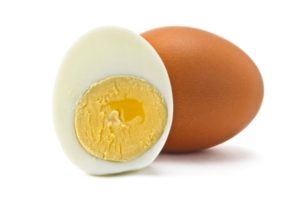
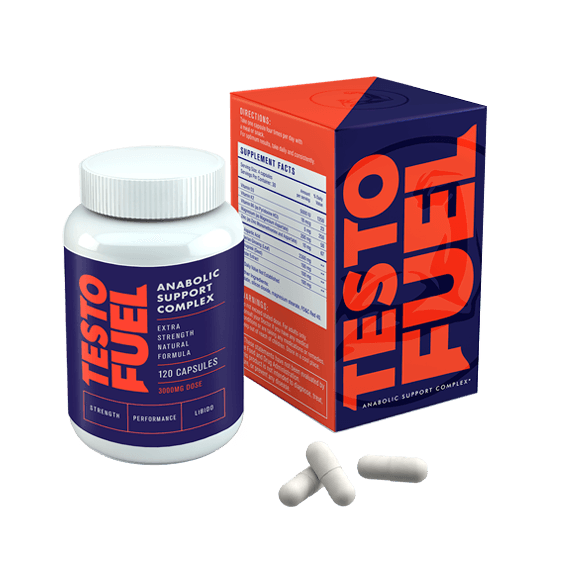
Comments are closed